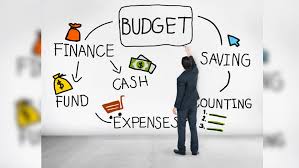One thing that has not changed over the past decades is the shaming of poor people for their perceived financial missteps. It may be shaming of the contents of their grocery carts, the size of their tv screens, their choice of phones, or their lack of a bank account. Feminists who may understand that mom needs the occasional tv as babysitter or soda as a treat may still lecture about banking habits. I was surprised to see a post on twitter where a person demanded their housekeeper get her own bank account in her own name. ( I was surprised at the number of people who commented favorably to that post who also had housekeepers and/or nannies. ) Financial abuse is a reality but can not be assumed because the household has no bank account or only one account in the husband’s name. Being poor is expensive. Most people do the best they can. You may be the one that needs some economic education.
Don’t assume. Assumptions undermine respect and encourage bias.
As a public health worker, up to 1999, I adhered to Family Development Principles.
Some of their points:
All people, and all families, have strengths.
All familes need and deserve support. The type and degree of support each family needs varies throughout the life-span. Most successful families are not dependent on long-term public support. Neither are they isolated. They maintain a healthy interdependence with extended family, friends, colleagues, other people, spiritual organizations, cultural and community groups, school and agencies, and the natural environment.
In order for families to move out of dependency, helping systems must shift from a power over to a power with paradigm. Human service workers have power (which they may not recognize) because they participate in the distribution of valued resources. Workers can use that power to work with families rather than to use power over them. This means you approach people as partners, as neighbors. Choice is essential to shared power, but people who live in poverty or with another ongoing serious problem are often denied choices.
It is important to pay attention to family context. Families develop patterns that work for them and it is crucial to be respectful and non-judgmental. Communicate with “skill and heart.” The bureaucratic obstacles that people encounter can not be minimized. Empathetic listening and support can motivate people to take the actions they need to move ahead.
On the other hand, develop boundaries. Community health workers do not have as much power or resources as we would like or need to fix the immense problems we often find. Be real. Be responsible, Be conscientious. That is the minimum and the maximum.
These are the principles for “helpers, advocates.” However, worker/employer relationships are different. The employer can hire, fire, pay and control work conduct of the employee. Conduct not work related is none of the employer’s business. Feminism does not give you reason to interfere in people’s personal lives unsolicited.



good exposition- Financial Literacy Month-https://www.youtube.com/watch?v=hbTdA51-KSA
LikeLike